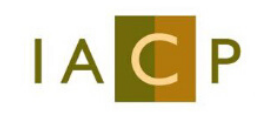Collaborative Practice
Collaborative Practice promotes respect and keeps a divorcing couple in control of the process, not judges.
"Thanks for everything, you did a good job. I think Lisa and I avoided wasting years of our lives in the courtroom by using the collaborative process."
"Collaborative Practice puts the kids first all the decisions are what we made- not the lawyers or the judges. It gave us control over the outcome of our divorce."
A Different Way To Divorce
Going through a divorce doesn't automatically mean having to endure the turmoil that is often associated with it. You now have another choice, Collaborative Practice. Developed as an alternative to traditional divorce, Collaborative Practice is a new option for divorcing couples to resolve disputes respectfully without going to court. It offers couples a humane, solutions-based approach to ending a relationship.
It differs from the traditional process because Collaborative Practice promotes respect and keeps control of the process with the couple, not a judge. Because clients agree not to go to court, the process is more open and less adversarial. The goal is to enhance communication throughout the process and lay the foundation for a healthier relationship during, and after, the divorce.
Collaborative Practice is based on three principles:
- The parties pledge in writing not to go to court.
- Both spouses engage in an honest exchange of information.
- Each solution takes into account the highest priorities of both spouses and their children.
How Does Collaborative Practice Work?
The goal of Collaborative Practice is to come to a mutually acceptable, negotiated settlement between two parties without the threat of going to court. In this practice, each of the parties retains their own collaborative attorney who will gather information, provide education on rights, responsibilities and options, and negotiate on their behalf.
At the center of Collaborative Practice are the needs of the entire family, especially the children's. With collaborative practice, conflict is kept to a minimum so all family members can move on positively with their lives.
Collaborative Practice is a good choice when each party prefers to have his or her own independent attorney guide them through the legal process. If the participants ultimately are unable to agree, the collaborative attorneys withdraw and litigation attorneys can be retained to take the matter to court.
The Collaborative Team - Centered Around You
To move on positively, there are times when working with other professionals can be helpful and can facilitate coming to an agreement. The collaborative team often includes:
- Divorce coaches who will assist in developing communication tools and managing difficult emotions.
- Child specialists who will work with parents in creating a parenting plan that works best for the children and gives them a "voice"
- Financial specialists who will gather and analyze financial information and assist in helping you make informed decisions about financial matters.
Benefits of Collaborative Practice
- Better for your children. Children are given a voice in the process, alleviating potential trauma that sometimes lasts for generations.
- You remain in control. Decision making is directly in the hands of the spouses involved in divorce rather than the hands of a third party, "one size fits all" directive.
- You enjoy confidentiality. Problems and assets are kept private.
- Solutions are mutually beneficial. The Collaborative Process recognizes and understands each client's needs, interests, concerns and goals, while allowing both parties to be heard throughout the duration.
- Focus on the future. Collaboration changes the notion of divorce from adversarial and win/lose to a problem-solving constructive process.
More information on Collaborative Practice
For more information on Collaborative Practice go to:
Please contact us to learn more about Collaborative Practice and to schedule a consultation. Our telephone number is 310-374-2025.




